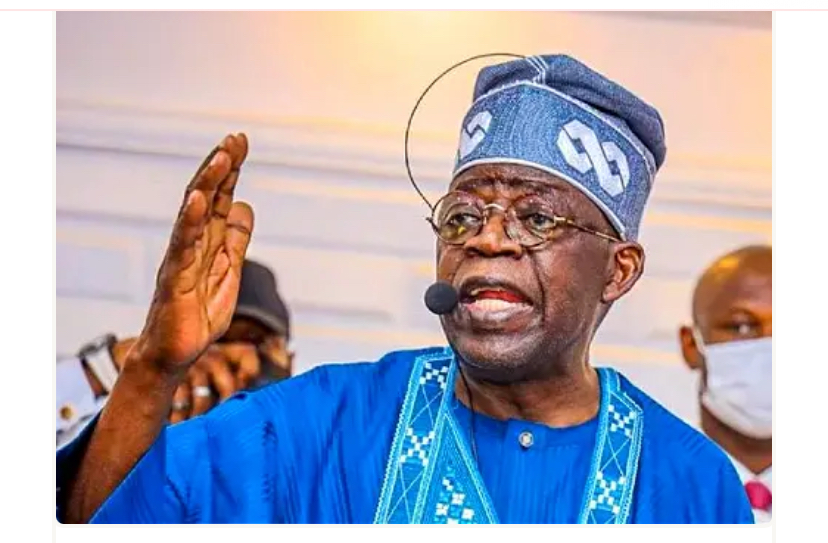politics
Imo North: Supreme Court reverses Ibezim’s disqualification

 The Supreme Court has reversed disqualification of Chukwuma Francis Ibezim as candidate of the All Progressives Congress (APC) in the December 5, 2020 by-election in Imo North Senatorial District of Imo State.
The Supreme Court has reversed disqualification of Chukwuma Francis Ibezim as candidate of the All Progressives Congress (APC) in the December 5, 2020 by-election in Imo North Senatorial District of Imo State.In a unanimous judgment on Friday, the apex court set aside the February 6, 2021 judgment of the Court of Appeal, Abuja which affirmed the December 4, 2020 judgment of the Federal High Court, Abuja disqualifying Ibezim for submitting false information to the Independent National Electoral Commission (INEC) in relation to his age, name and academic credentials.
Justice Emmanuel Agim read the judgment of the Supreme Court on Friday during a virtual court session, in which lawyers to parties participated through Zoom.
Justice Agim faulted the competence of the suit on which the earlier judgment of the Federal High Court was given on December 4, 2020.
He also faulted the mode of commencement of the suit at the trial court.
Justice Agim held that the suit which led to Ibezim’s disqualification was statute barred because it was not filed within the stipulated time.
He noted that the suit was not filed within 14 days when the cause of action arose.
He added that Section 285 of the 1999 was not complied with by the plaintiff at the trial court, because being a pre-election case, the mandatory 14 days for such suit to be filed ought to be strictly complied with.
Justice Agim held that since Ibezim was disqualified by the trial court and the Court of Appeal based on a case that has been found to be statute barred, such disqualification amounts to a nullity.
He faulted the findings of the trial court judge, Justice Inyang Ekwo, and held the plaintiff failed to discharge the burden of proof of false information that was alleged.
Justice Stephen Adah, had while dismissing Ibezim’s appeal in the judgment of the Court of Appeal delivered on February 6, 2021, resolved the two issues identified for determination against the appellant, saying that the finding of the trial Federal High Court was unassailable to warrant any interference by the Court of Appeal.
Justice Adah found that the appellant (Ibezim) violated Section 66(1)(i) of the Constitution by presenting forged certificate to INEC.
He held that Ibezim was not qualified to contest the election. It also held that the suit was not statute barred, having been filed 11 days after the occurrence of the cause of action, thereby falling within the 14 days prescribed for the filing of a pre-election case under Section 285(9) of the Constitution (4th Alteration).
He warned that a candidate who wants to supply information to INEC in any general election “must be diligent and strictly faultless in respect of the entries made thereof; the arrangement of the name of an individual must be seen as a serious venture.
“The candidate must be diligent in doing that. If the name of a person is misspelt or is misarranged, it tells a lie about his name… if the name are written out of tune or out of order, the name will be manifesting names of the person other than the person claiming it.”
The judgment was in the appeal marked: CA/A/1085/2020 filed by Ibezim against the judgment of the Federal High Court, Abuja.
Other members of the panel of the Court of Appeal that decided the appeal were Justices Abubakar Yahaya (who led) and Uchechukwu Onyemenam.
Justice Ekwo had, in the December 4, 2020 judgment in the suit, marked: FHC/ABJ/CS/1229/2020 filed by Asomugha Tony Elebeke, found the WASC certificate Ibezim submitted to his party, which the APC in turn handed to INEC, contained different and irreconcilable names – Ibezim Chukwuma Frank and Ibezim Francis Chukwuma.
The judge said: “There is something wrong with these results. The defence of the 1st defendant per the averments in paragraphs 26, 27, 28 and 29 of his counter-affidavit has not explained the variations in the three respective result sheets, neither have the said averments debunked the fact that Exhibits A26, 27 and 28 were submitted to the 3rd defendant by the 2nd defendant or that the certified true copies of these exhibits were not obtained from the 3rd defendant.
“The 1st defendant, having not taken any step to controvert the case of plaintiff concerning the falsity of Exhibits A26, A27 and A28, has therefore allowed the case of the plaintiff to remain uncontroverted.
“I therefore find that Exhibits A26, A27 and A28 submitted are not authentic results and are self-contradictory. Therefore, they are false in all material particular and I so hold. I resolve issue one in favour of the plaintiff.
The judge found that Ibezim failed to prove that the various names in his credentials are one and the same.
Justice Ekwo faulted Ibezim’s claim that it was his elder brother – Emmanuel Ibezim – who signed the declaration of age he submitted, noting that the signatures in the age declaration document and other documents he (Ibezim) admitted signing look the same.
“I find that the allegation that the 1st defendant signed the statutory declaration of age for himself (Exhibit A25) as the declarant/deponent, but purported to do so as his elder brother, Emmanuel Ibezim, is established with uncontroverted evidence in this case, ” the judge said.
Justice Ekwo also faulted the affidavit and newspaper publications Ibezim submitted in support of his claim that the names were all his.
“Again, I do not think that the 1st defendant can use affidavit to correct the names. It is common sense to state that the certificates were not issued by the court but the institutions authorised to issue them.
“If there is any error on any academic certificate, it is the institution that issued it that has the power to correct the error not the High Court Registry. It is in this regard that I find that Exhibit SF16 which is the affidavit of conciliation of name is bereft of probative value and I so hold.”
politics
Update : C’River PDP Deputy Governorship Candidate,Emana Resigns From Party

 The Peoples Democratic Party (PDP) Deputy Governorship Candidate in 2023 general election, in Cross River State, Dr Emana Duke Ambroose-Amawhe, has resigned her membership from the party.
The Peoples Democratic Party (PDP) Deputy Governorship Candidate in 2023 general election, in Cross River State, Dr Emana Duke Ambroose-Amawhe, has resigned her membership from the party.
In a letter dated
march 28,2025, and addressed to the chairman of Edem Odo Ward, in Akpabuyo local government area of Cross River State, the former Deputy Governorship Candidate,explained that the resignation was with immediate effect.
She said her decision to leave the party was not made lightly, but she remains committed to serving her community and contributing to the progress of Cross River state and nation in other capacities.
In her words, “i am writing to formally resign my membership from the Peoples Democratic Party (PDP) with immediate effect.
” I sincerely appreciate the opportunity given to me over time to contribute my quota to the growth of the party and the chance to serve as the Deputy Governorship Candidate in the last general elections.
” It was a privilege to be part of the PDP’s vision and engage with our people in meaningful ways. However, after much reflection in light of the current state of affairs within the party, I believe it is time for me to move on.
“This decision was not made lightly, but I remain committed to serving my community and contributing to the progress of our state and nation in other capacities.
Continuing ” I appreciate the relationships and experiences gained during my time with the party and wish the PDP success in its future endeavours.
Amawhe, an embodiment of competence, capability and capacity,
was the Deputy Governorship Candidate to Senator Sandy Onor in Cross River State during the 2023 elections.
She was also an aspirant to the House of Representatives for the Bakassi/Akpabuyo/Calabar South Federal Constituency on the platform of the PDP.
politics
Breaking : Sule Lamido blasts El-Rufai over call to join SDP, Says how can a grandson claim his grandfather knows nothing’

 Former Governor of Jigawa State and chieftain of the Peoples Democratic Party (PDP), Alhaji Sule Lamido, has fired back at former Kaduna State Governor, Malam Nasir El-Rufai, over his call for opposition politicians to join the Social Democratic Party (SDP).
Former Governor of Jigawa State and chieftain of the Peoples Democratic Party (PDP), Alhaji Sule Lamido, has fired back at former Kaduna State Governor, Malam Nasir El-Rufai, over his call for opposition politicians to join the Social Democratic Party (SDP).
El-Rufai, who recently announced his defection from the All Progressives Congress (APC) to SDP, urged opposition leaders including Atiku Abubakar, Peter Obi, Rotimi Amaechi, and Rauf Aregbesola to join him in his new political movement.
However, Lamido in an interview with BBC dismissed El-Rufai’s invitation, questioning his political ideology and commitment to national development.
“With all due respect, how does he expect us in PDP to leave and join another party? The PDP that we built is the same party that made him who he is today. How can a grandson claim his grandfather knows nothing?” Lamido said.
He recalled that El-Rufai once declared there were no political elders in Nigeria, insisting that he and his allies were the true power brokers.
“But now he claims he advised Buhari. If he truly had the power he once boasted of, why did he have to seek Buhari’s counsel?” Lamido asked.
The former governor stressed that, despite PDP’s internal challenges, it remained his political home.
“If PDP is struggling today, it is still the party that nurtured El-Rufai. If he claims PDP is dead, then he must remember that it is the party that gave him his political foundation. Whatever he has achieved today, PDP made it possible.”
“If I didn’t join APC in 2014 when I was invited, and they left PDP out of anger, why are they now leaving APC? What has APC done to them?” he asked.
He maintained that governance should not be driven by emotions or personal grudges.
“Leadership is about patience, foresight, and working for the peace of the people and the nation. If you allow emotions to dictate your decisions, you will never lead objectively.”
He stressed that if the goal is to unseat President Bola Tinubu, it should not be based on personal grievances but on national interest.
“We should not fight Tinubu just because we are angry at him or seeking revenge. Leadership should be about prioritizing the country’s well-being rather than personal emotions.”
Lamido concluded by urging politicians to focus on strengthening the country rather than making decisions based on resentment.
politics
Breaking : Rivers State House of Assembly Gives Governor Fubara, 48 hours to present 2025 Budget

 ….I’ll obey Supreme Court judgment, says Fubara
….I’ll obey Supreme Court judgment, says Fubara
Forty-eight hours after the Supreme Court handed down two judgments that threaten the soul of the Siminalayi Fubara Rivers State government, the governor yesterday announced his intention to fully obey the orders.
In a twist, described by observers of the Rivers State politics as unexpected, Fubara told Rivers residents that he expected to get the Certified True Copy (CTC) of the judgment by Friday to enable him to take the necessary action.
He ordered the 23 local government chairmen, whose election was voided by the judgment, to quit today after handing over to heads of personnel.
The apex court on Friday gave two judgments – one by Justice Akomaye Agim, which recognises the Martins Amaewhule-led 26 members of the state House of Assembly, and the second by Justice Jamilu Tukur, which declared as invalid the election conducted on October 5, 2024, that led to the emergence of 23 chairmen and 319 councillors.
The apex court further invalidated the state budget and ordered the Central Bank and the Accountant-General of the Federation to stop releasing funds to the state government pending when Fubara would re-present the budget to the authentic House of Assembly led by Speaker Amaewhule.
In a broadcast yesterday, Governor Fubara said: “I have had a meeting with my team of lawyers and they have assured me that the certified true copy of the judgments may be available to them by Friday 7th March 2025.
“I assure you that upon the receipt of certified judgments, we shall study their ramifications and implement them without reservations to move the state forward.
“Furthermore, given the outlawing of caretaker arrangements in the local government system, I hereby direct the heads of personnel management to immediately take over the administration of the 23 local government councils pending the conduct of fresh elections by the Rivers State Independent Electoral Commission.
“I further direct the outgoing local government chairmen to formally hand over the levers of power to the heads of personnel management by Monday, 3rd March 2025.”
Fubara said since its inception, his administration conducted the affairs of government within the framework of the constitution, due process and the rule of law.
The governor noted with regret the trying times the state had been plunged but urged everyone to remain calm and peacefully go about their legitimate daily activities and be sure that his administration would continue to do everything in meeting their aspirations.
Fubara said: “We are all aware of the recent Supreme Court judgments and pronouncements regarding aspects of the lingering political disputes in our dear state.
“Although we disagree with the judgments, we are bound to obey the orders made therein as a law-abiding government.
“Since inception, we have conducted the affairs of government within the framework of our Constitution, due process and the rule of law.
“While we are not above mistakes because we are humans, we believe that we have not, as a government, done anything deliberately to trample on the rule of law or the hallowed principles of constitutional governance.”
Fubara, Amaewhule should work together, say elders
The Rivers State Elders Council (RSEC) called on Fubara and Speaker Amaewhule, to prioritise the interest of the state and work together in line with the Supreme Court judgment.
Referring to Fubara and the lawmakers as one political family, the elders in a statement signed by its Chairman, Chief Ferdinand Alabraba, said there was no more case standing between the both parties.
The elders congratulated the people of Rivers State on what they described as the well-rounded pronouncements of the Supreme Court oon the political crises.
The statement said: “The Elders Council further commends the people of the state for their resilience, patience and peaceful disposition throughout the period of the crises in the state while awaiting the final verdict of the apex court of the land on all the matters.
“Now that the Supreme Court has spoken unequivocally on all the matters, we believe strongly that nothing now stands in the way of His Excellency, Sir Siminalayi Fubara, Governor of Rivers State and Rt Hon Martin Amaewhule, Speaker of the Rivers State House of Assembly, working together in the best interest of the state and her people.
“We are, therefore, calling on the Governor of Rivers State and the Speaker of the Rivers State House of Assembly, who both emerged from the same political family in the state, to put Rivers State above all other considerations, personal or otherwise, and ensure urgently that all necessary steps are taken in conformity with their constitutional responsibilities.
“We give God Almighty all the glory for granting Rivers State this unique opening for peace to return to our dear state.”
-

 news4 years ago
news4 years agoUPDATE: #ENDSARS: CCTV footage of Lekki shootings intact – Says Sanwo – Olu
-

 news1 year ago
news1 year agoEnvironmental Pollutions : OGONI COMMUNITY CRIES OUT, THREATENS TO SHUT DOWN FIRSTBANK,SHELL OIL COMPANY OPERATIONS FOR NOT PAYING COURT AWARD
-

 news2 weeks ago
news2 weeks agoBreaking : TInubu appoints Bashir Ojulari as new CEO group of NNPC and GMD mele kyari get sacked, Says Onanuga
-

 interview3 weeks ago
interview3 weeks agoNIGERIA MECHANIZED AGRO EXTENSION SERVICE PROJECT, A STRATEGIC MOVE TO ALLEVIATE POVERTY – DR. AMINU ABDULKADIR
-

 news3 weeks ago
news3 weeks agoUpdate : Fubara ordered bombing of Rivers Assembly, I am not under duress I resigned, Says ex-Rivers HoS Nwaeke
-

 news3 weeks ago
news3 weeks agoTinubu commended Nandap for her leadership, extends Comptroller-General tenure till 2026, says Onanuga
-

 news6 days ago
news6 days agoNothing new in FBI report on Tinubu, says Onanuga
-

 news1 week ago
news1 week agoUpdate : FG confirms continuation of crude, refined product sales in Naira initiative, Says Wale Edu


